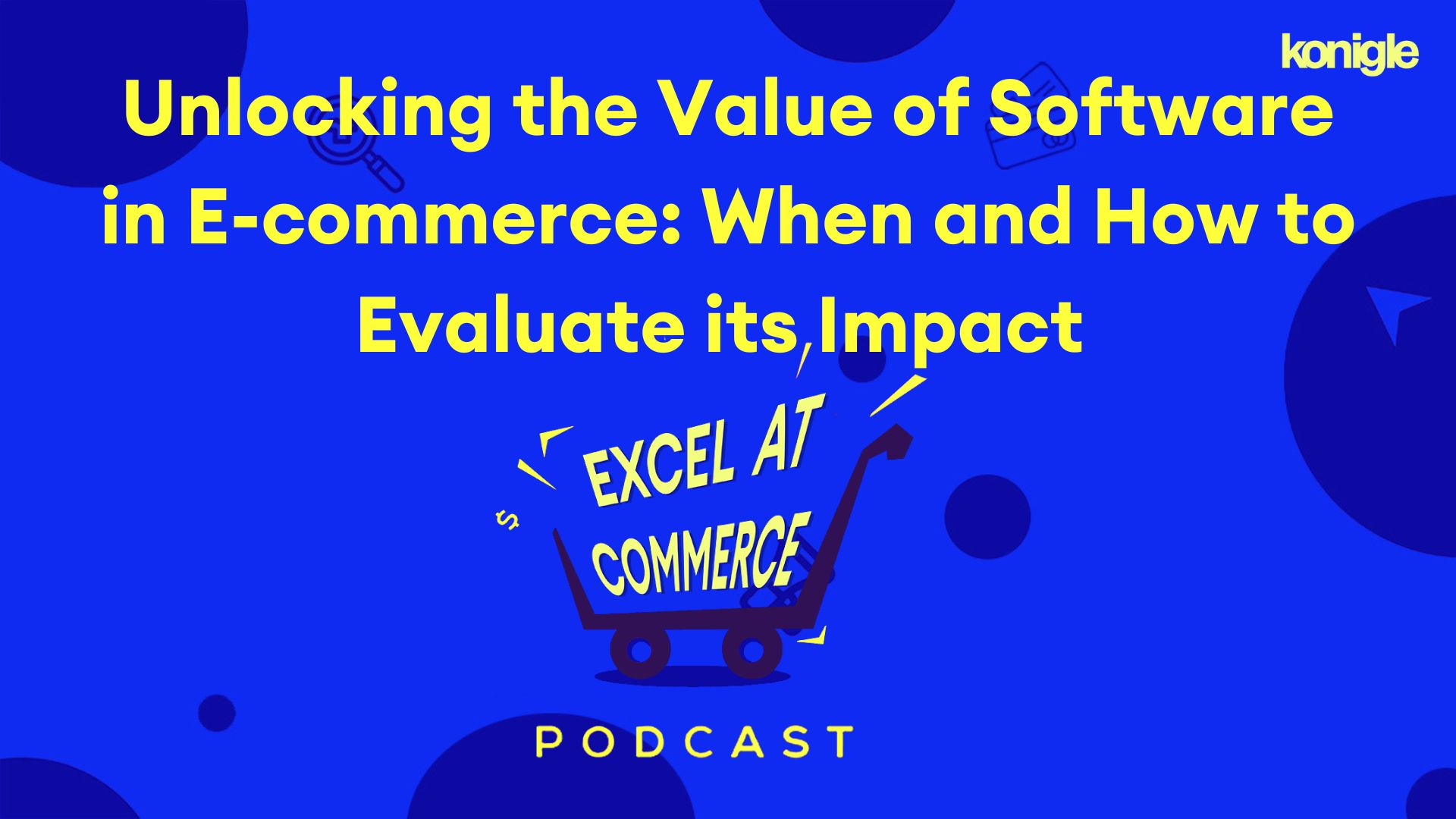Unlocking the Value of Software in E-commerce: When and How to Evaluate its Impact

July 4 2023
Ngân provides e-commerce businesses with guidance on when to assess the value of software and how to evaluate its impact. Factors to consider include customer needs, business goals, adaptability, expertise, user feedback and ROI.
In the ever-evolving landscape of e-commerce, the right software can be a game-changer for businesses. However, determining the value that a software solution brings and when to evaluate its impact can be challenging. Ngân, a seasoned expert in the field, shares her insights on judging the value of software and offers guidance for e-commerce business owners and operators.
One crucial aspect highlighted by Ngân is understanding the customer. Knowing the customer's business model, background, and goals is essential in assessing the right time to introduce a software solution. For businesses in the early stages, lacking digitalization and a strong foundation, it presents an opportune moment for software implementation. By acting as an expert and helping them establish a digital presence, businesses can lay the groundwork for future growth.
Alternatively, for businesses that have already implemented a software system but are experiencing difficulties, it is also the right time to evaluate its effectiveness. Ngân emphasizes the importance of optimizing processes and ensuring that the software aligns with the business's evolving needs. By offering assistance and presenting the value of a more efficient and tailored solution, businesses can enhance their operations and achieve better results.
Ngân acknowledges the common dilemma faced by e-commerce business owners: each software vendor claims to have added value and increased sales. To navigate this challenge, Ngân suggests considering the following factors:
1. Business goals: Evaluate how the software aligns with the business's objectives. Does it address pain points and contribute to achieving desired outcomes?
2. Adaptability: Assess whether the software can keep up with the business's growth and changing requirements. Is it scalable and flexible enough to accommodate future needs?
3. Expertise: Look for a software vendor with industry expertise and a proven track record. Consider their ability to understand your specific business needs and provide tailored solutions.
4. User feedback: Seek feedback from users who have experienced the software firsthand. Their insights can provide valuable perspectives on its usability, functionality, and impact on their daily operations.
5. ROI analysis: Conduct a comprehensive return on investment (ROI) analysis to quantify the value generated by the software. Consider factors such as increased efficiency, cost savings, improved customer experience, and revenue growth.
By considering these factors, e-commerce business owners can make informed decisions about the value of a software solution. It is essential to have open and transparent communication with software vendors and consult with experts who can provide objective insights.
In conclusion, Ngân emphasizes that the right time to judge the value of software is when businesses are either in the early stages, lacking digitalization, or facing challenges with their current system. Understanding the customer's needs and aligning software solutions accordingly is crucial. By assessing factors such as business goals, adaptability, expertise, user feedback, and ROI, businesses can effectively evaluate the impact of software on their operations and make informed decisions that drive growth and success in the e-commerce landscape.